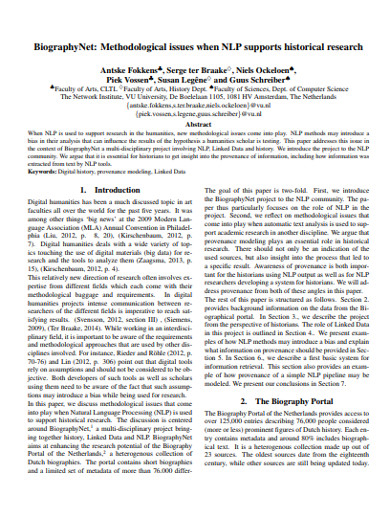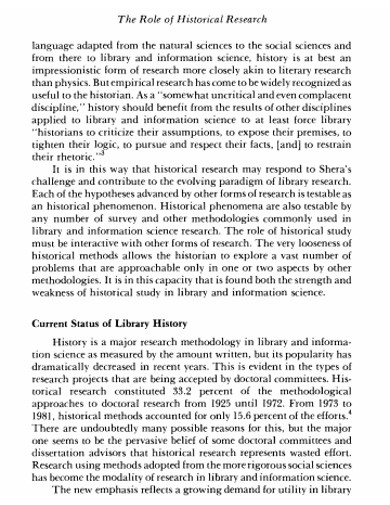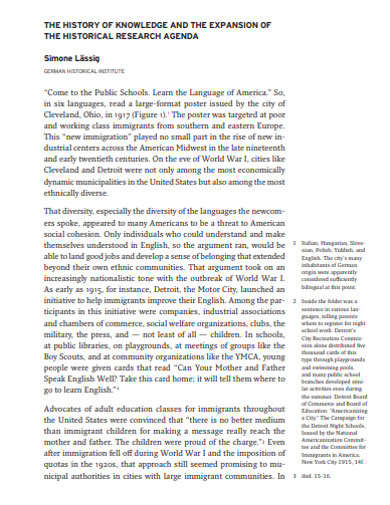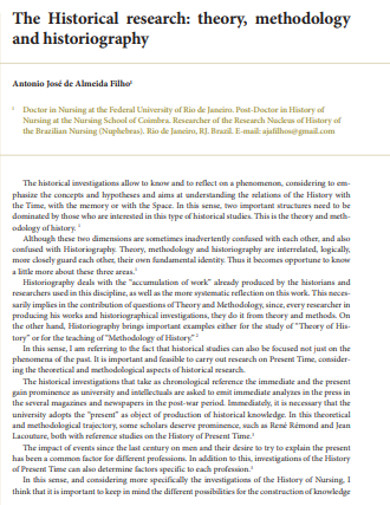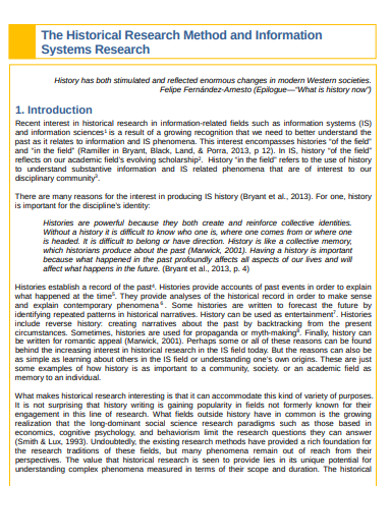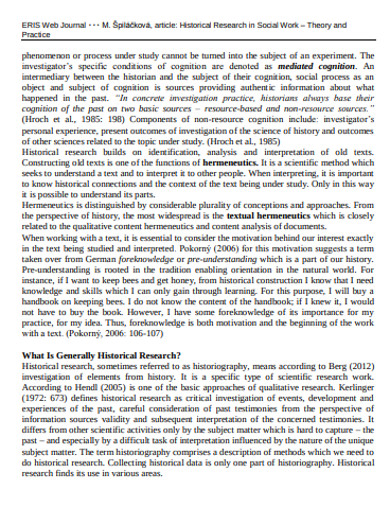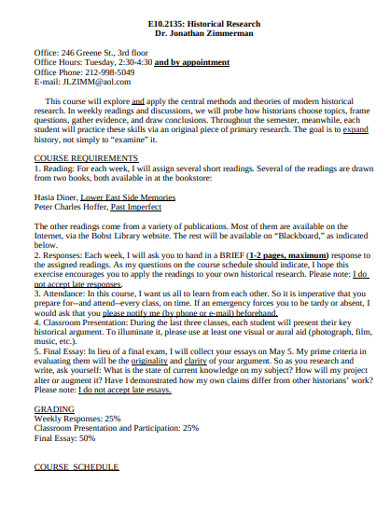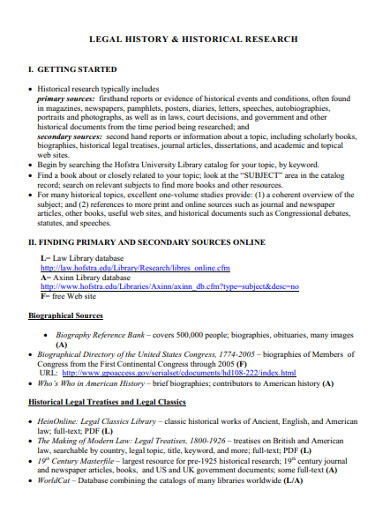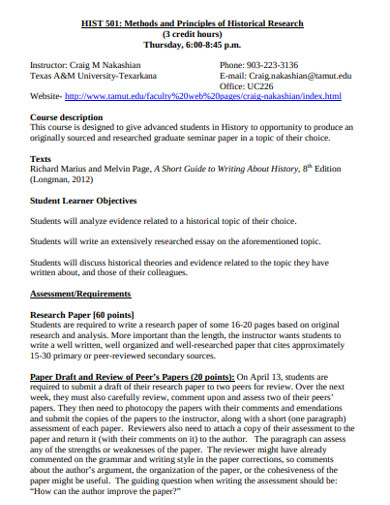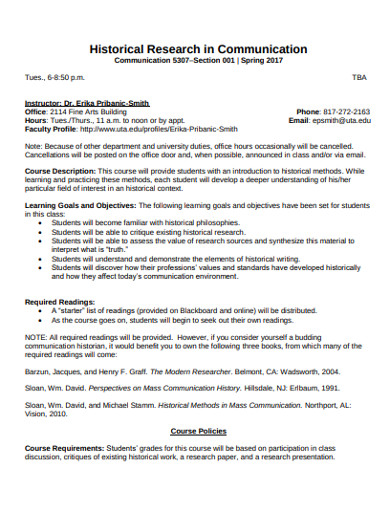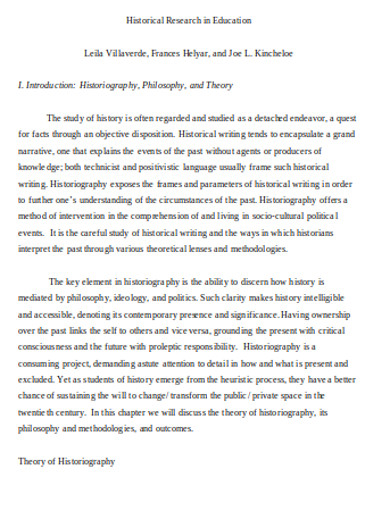10+ Historical Research Examples to Download
One of the most significant historical events that changed the world is the invention of written language around 3500-3000 BCE in Sumer. Originally, Sumerians started to use writing to communicate with people from other cities and regions to trade resources. From then on, they did multiple enhancements on the invention to maximize its use. Today, needless to say, this invention has been serving us its purpose in many ways, such as in developing procedure documentation and writing a research paper for historical research.
What Is Historical Research?
Historical research is a research methodology that allows people to study past events that have molded the present. This investigation involves systematically retaking the pieces of information from one or more data sources which can let you, as a researcher or a detective, create a theory of how a phenomenon happened to be in its present situation. Although this type of research usually uses primary sources, such as journals and testimonies in many forms, the data it gets may also come from secondary sources, such as textbooks in the public library, newspapers, etc. Due to the nature of historical research, comparing and preserving historical records can also be good reasons to conduct this kind of research.
Strong Historical Research Design
For effective execution of the data collection and analysis for historical research in education and other fields, you will need a strong research design that includes the following stages.
1. Data Collection
We have mentioned earlier that in gathering the necessary data for historical research, you can use either or both primary and secondary data sources. Additionally, although this research is under the vast category of qualitative research, you can use quantitative data to interpret the facts you use.
2. Data Criticism
One of the advantages of conducting historical research is, aside from the present, you may gather evidence to explain the event that is yet to happen, which can be a delicate piece of information. In coming up with an explanation about a future phenomenon, you must evaluate the reliability of your sources. You can do it through internal and external validity. Through an external validity, you can determine the authenticity of a reference. Meanwhile, with internal validity, you can ensure that the data you gather is reliable by interpreting the content correctly.
3. Data Presentation
Once you have assured that the data you have collected is competent enough, you will analyze it and test the hypothesis of your research. We recommend you to do this step carefully since you will use logical methods instead of statistical tools. Avoid over-simplifying details and incorporating personal observations.
10+ Historical Research Examples
Now, you know the elements to include in your research. Let’s take a look at how researchers write their history research paper.
1. Biography of Historical Research Example
2. Historical Research in Library Example
3. Historical Reserch Agenda Example
4. Sample Historical Research Example
5. Historical Research Information Systems Research Example
6. Historical Research in Social Work Example
7. Stndard Historical Research Example
8. Legal History and Historical Research Example
9. Methods and Principles of Historical Research Example
10. Historical Research in Communication Example
11. Historical Research in Education Example
Best Practices in Conducting Historical Research
Now that you know almost everything that you need to cover about historical research, strengthen your project by keeping the following guidelines in mind.
1. Narrow Down the Direction of Your Project
Before you start writing your research paper, think of the topic that you choose to research. List down the research questions that you will focus on throughout the research process. Gather useful information and take note of the source information such as the author, etc. Then, decide on the specific type of information that you want to focus on. These steps will ensure that your research will not go astray.
2. Be Mindful of Your Sources
There are many sources available to gather information for your inquiry, especially on the internet. However, the question is, are these contents reliable enough? For historical research, we recommend you to ask assistance to the public librarians or historical consultants before you incorporate the information that you have gathered from the internet and the library.
3. Balance your Searches
Nowadays, you can always find the information that you need through the internet. However, when conducting research, you must do well-balanced data gathering. Meaning, aside from one source like the internet, you can gather data that you can only find in a particular root. A good example is local news.
4. Dig Deeper
It is essential to narrow down the scope of your research. It will be more interesting if you use the information that you have gathered to know more about a particular event or topic. It can also be an excellent way to find new leads that can support your research.
Countless historical events changed the way we perceive things. Among these phenomena, is the invention of written language. It also allows us to know how to deal with the obstacles that we are yet to encounter. Enlighten the people of a significant phenomenon by applying what you learned today to the research project that you are going to conduct.



